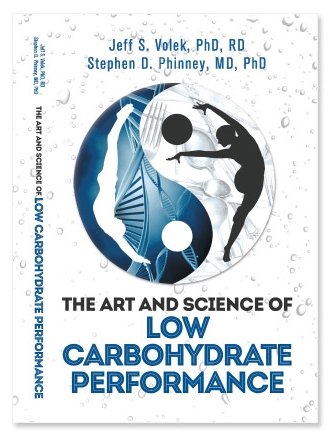My ketogenic lifestyle, or how I traded cake and cookies for mental clarity, better performance and consistent energy levels.

The ketogenic or ‘keto’ diet has been steadily gaining popularity among people looking for an effective method of weight control, since it poses the potential for swift and painless weight loss while allowing the dieter to eat a lot of flavorful foods that are usually considered “naughty” and off limits in traditional weight loss approaches – bacon, meat, butter and oils, nuts, cheese and dark chocolate, for example.

Does it sound too good to be true? Perhaps. As per usual, there is a catch: the goal of eating this way is to train your body to use fat instead of sugar as a main source of fuel, and for this, you have to drastically reduce your carbohydrate intake to the very minimum (about 20 - 30 g of net carbs a day) while greatly increasing the amount of fat in your diet. That means not only saying goodbye to the obvious culprits like pasta, bread and baked goods, but also to most kinds of fruit, and even vegetables unless they are consumed in limited amounts. After a couple of weeks of keeping this low carb/high fat intake, your body becomes “fat adapted” which allows it to use your own fat as fuel in a very efficient way when subject to a caloric deficit, without affecting your energy levels.
Initially seduced by the promise of rapid weight loss, I started doing nutritional ketosis about a year and a half ago, so I think I have more than enough experience to give an overview of how it has been working for me so far (spoiler: AMAZINGLY well). However, knowing that the thought of going into such an extreme change in diet and habits is often a bit daunting and the amount of information available can feel overwhelming, I decided to write first about how I got into it in the first place.
How I got started
Once my curiosity was piqued, I decided to do some proper research on the topic before using myself as an experimental subject. Here are some of the resources that I found the most useful:
Ketosis – advantaged or misunderstood state? (Part I). This is the article that finally convinced me that this was not just a fad diet and showed me clearly how and why it works. It really clarified a lot of questions that I had about the underlying mechanisms (also, it was a good way to refresh my knowledge of basic Biochemistry).
Keto-adaptation: what it is and how to adjust. An article on the basics of keto and keto adaptation that is really informative and contains good sources for further reading.
How to try a keto diet. An excellent guide, with detailed plans and descriptions on how to get started, what mistakes to avoid, what signs to look for, etc. regarding keto. It was incredibly useful for me to get started using this 30-day plan as a guideline (even though I didn't follow her suggested all-meat plan, but other keto-approved foods).
In addition, if you are worried about the impact of going extremely low carb on your physical performance while exercising, well I got great news for you:
TL;DW: Once you are fat-adapted, you can perform as well as you did when eating carbs, and you can even get some extra benefits like significantly increased endurance, less inflammation, faster recovery times and better body recomposition. For more detailed information about the processes involved and scientific studies carried out in this framework, I highly recommend the following book – a must for those athletes considering adopting a ketogenic diet:


I decided to start the 30 day experiment. Compared to other people's experiences, my adaptation period went like a breeze, probably because I actually did my research before doing it so I could avoid most of the common mistakes. In addition, I took preventive measures to lessen the side effects of the adaptation period: drinking lots of water, increasing my intake of minerals, going a bit easier on my exercise routine during that time. I did get some headaches, felt a bit tired and had trouble sleeping a couple of times, but that was pretty much it.
Things I experienced during keto adaptation:
- Never ending thirst! But this is normal and it gets better after a couple of weeks.
- Peeing all the time (same as above).
- Funny Breath? Metallic taste in mouth. I am not sure about the breath since I can't smell it (how do people smell their own breath?), but I could detect a very distinct metallic/alcoholic taste in my mouth from day three or so. At first it was constant, but it went away after a couple of weeks; still feel it from time to time.
- Smelly sweat. Be ready to step up your personal hygiene. This was one of the major drawbacks of doing this, after a hard workout session my clothes smelled so strongly of ammonia (still happening even now that the adaptation period is over) that sometimes made me feel self-conscious. I try to always shower before I go to the gym to minimize the smell as much as possible. It definitely got better with time, but I feel a bit paranoid about it.
- Light sleep. Sometimes it was rather difficult to fall asleep at night, even if I was tired, and usually woke up with my mind racing at an early hour in the morning.
- Social Awkwardness. Be prepared for people constantly asking you why you do not eat this or that, why you never want a piece of the cake they brought to the office (not even a bite!), why you always eat the same things, why you only order black coffee, etc etc... Also, struggling to find suitable stuff to eat every time you go eating out. Also, no beer or wine unless it’s very dry and in limited amounts.
- Pins and needles, cramps. Due to electrolyte imbalance/mineral deficiency. It kept happening now and then, and I managed to make them subside by drinking beef broth in the evenings after my workouts.
Regardless, after the adaptation period – which for me lasted about two weeks – I noticed a lot of benefits (some of them, like the improved alertness, where already present during adaptation).
Noticeable benefits of keto (in my experience):
- Much more stable mood. It is really unbelievable how much it helped me lessen my depression and anxiety. For those of you struggling with it, I definitely recommend giving it a try!
- Overall good mood and feeling motivated, occasional euphoria.
- More awake and alert, improved focus (seriously, in a good week I pretty much feel like Bradley Cooper's character in Limitless).
- Energy levels remain constant, not feeling tired anymore. This was a game changer for me. I was that person who was always tired and forcing herself to do things throughout the day, and by 7 pm I was pretty much out of energy to do anything, but now I rarely feel tired or sleepy anymore, and after work I still feel energized and ready to exercise or go out.
- Absence of lethargy after meals (a.k.a "food coma"), even when eating a large meal. Usually right after lunch or dinner I can just get up and do something immediately, instead of feeling like napping on the couch.
- Hunger under control. This is one of the best perks of it. After a while, you really lose your focus on food, is like you are not so interested in it anymore. You stop craving carbs so much. Also, I noticed that my feeling of hunger is now more of a calmed "I need something to fuel my body" rather than the panicky and distracting OMG I'm ravenous EAT ALL THE THINGS! Is that a brownie??? sort of feeling it used to be. Also, I noticed I can skip meals (sometimes even fast the entire day) without it affecting my energy levels, like it used to happen before.
- Hair and skin look much better.
- Looking a lot leaner (face especially) and much less bloat.
- Improved endurance during exercise.
- At some point, I also noticed that I needed less hours of sleep (about 6h, it used to be more like 8-9 h) to feel perfectly rested and energized. Also, I woke up feeling ready to get up, with my brain clear and working, instead of struggling to come out of some stupor. However, this changed when I increased the intensity of my training.
That was part of my experience. I would especially recommend keto to those struggling with lots of cravings, mood swings, lack of energy and focus, and weight fluctuations due to water retention.
Curiously enough, even though I adopted keto with the initial aim of losing fat (which has definitely been effective for), I decided to stick to it long term because of how it makes me feel.

A keto diet is not for everyone, but I have found that for some individuals, like myself, it can really be a game changer. So if you find yourself feeling curious about how your body will react to it, I recommend giving the 30 day experiment mentioned above a try and evaluate your results in comparison to a regular diet.
Hope you found this helpful! If you have any questions, feel free to ask away in the comment section... same for suggestions or other info you would like to share, I like to always keep learning.
---------------------------------
Image sources: Pixabay, Amazon
Great post! Very informative. I did manage to be on 0% sugar diet a few years ago, and it was hard, but very good in the long run.
Thank you for sharing!
Hi @tamacvet, I was just wondering about the positive effects that you experienced after quitting sugar, did you do it long or short term? Thanks for your comment!
I din't eat any sugar for 3 months, and when I say any, I mean it :) No fruit, to gum, no dough, no pasta, no potato etc.. Then I gradually started adding a lit bit of sugar trough fruit and veggies. The first week was the hardest, I had 0 energy, and I was in a really bad mood. After that, my body learned to function without sugar. In long term, I had more energy, my PMS was waaaay better :), my mood swings in general were less severe, my taste buds became more sensitive, so food tasted better. In general, I really try to avoid sugar as much as possible. The hardest thing about it is there are too many hidden sugars, in ketchup, yogurt, "low fat" anything.. Thank you for the post, it is very good! @irime
i dont add sugar to anything and am trying to be careful not to eat cakes and biscuits - i am happy to support you by following now
Thanks a lot! Avoiding excessive consumption of sugar and refined carbs is definitely a great approach for health in general, regardless of the diet one follows, so kudos on that, @daydreams4rock!
This Post was Added to the Steemit Social Media Queue.
@hilarski, Thank you for your support!
I allways hear mixed stories about people who are going keta. Personally I like carbs around training sessions. But only the slow carbs (sweet potato's, oatmeal, etc). It really helps me on intense training sessions!
No processed sugars offcourse but fruits I do eat, what about you? Do you eat fruits?
Liked, loved and will follow you!
Me too, usually the reviews are polarized into "it was so great it changed my life" and "it sucked so much that I cannot understand why anyone would put themselves through it", hehe...
However from some anecdotes I have read, many of those who underwent horrible experiences in keto usually didn't make it past the initial couple of weeks of adaptation, which means they just experienced the initial symptoms of carb withdrawal, but didn't get to experience the benefits of being fat adapted because they didn't keep it up long enough.
Many people find they perform better in training if they incorporate more carbs, true. For me, this is not the case: I don't lack explosiveness and find that I have much better endurance while in keto. I guess I am just one of those individuals for whom this diet works really well for their particular physiological makeup.
About fruits, I only eat berries since most other fruits contain too much sugar; I also eat tomatoes, avocados (great for fiber!) and olives on a regular basis.
Sorry for the mammoth response, and thanks a lot, @steemitbeta!
Haha that is a mommoth rsponse yeah ;)
Agreed about people not trying long enough! But I have to say it is so hard in this civilization to eat totally clean.. I try it with a lot of my clients but it is allways a long process to make people free from sugar addictions... Sugar is literally everywhere :P.
What kind of sports do you do I am curious about.. And also I wonder how your diet was befor you went keto.. did you allready eat healthy? Because eating lots of greens and less sugars give loads of health improvements to people even without going keta :).
I was always quite health-conscious regarding eating habits, and have experimented with many different diets. A few years ago I went vegetarian for two years, and then I took it further and became a vegan but that only lasted about six more months (I couldn't give up dairy, ha!). After that, I started reintroducing animal products in my diet.
However I always had a terrible sweet tooth and it was clear to me that I was a sugar addict (even if most of that sugar was coming from "healthy" sources), which gave me crazy mood swings and cravings. Hence, I decided to give keto a try and it finally got me rid of my addiction! (or at least made it a lot more manageable).
About sport, I practice martial arts, currently focusing on Brazilian Jiu Jitsu (as you can see in some of my previous articles). It is one of the most demanding physical activities I have experienced, a combat match looks something like this:
Great primer on keto. Your advice on getting bone broth really helped btw.
Very glad to read that! Thanks for your comment, @feedroh.
That was very informative post. I can tell that because, I've bee through keto myself. To be honest, I started keto since I heard it was a rapid fat loss diet. To some part it is true. But if you don't educate yourself, it will be worst for you. I almost lost 22 lbs following keto. The biggest mistake people make is, again adapting to their old eating habits after seeing results. That should be avoided.
Thanks for sharing :D
That is so true, @rahul516. Especially if one is planning to keep it up long term, doing some research on how to keep good health while in keto is essential. For example, a keto diet can offset mineral and electrolyte balance in the body, which can result in anything from dizziness and cramps to increasing your risk of getting kidney stones. One needs to learn how to properly hydrate and supplement to keep such negative potential side effects at bay.
It is also true that many people get too confident and forget that if you want to see weight loss, you still need to create a caloric deficit; keto is not a magical pass to eat whatever without getting fat. Also, backsliding trying to see how many carbs you can reintroduce in your diet without falling out of keto is a very common "cheat" that stalls people's progress. I should know, I have made both these mistakes myself!
Totally agree with you.
In my 2 decades of following low-carb, I have experienced only one persistent negative effect, namely, well-meaning (sometimes) fools preaching to me about how "unhealthy" it is. I'm 125 lbs lighter, have good blood sugar control, complete remission of my crippling arthritis, elimination of my severe adult acne, better night vision, and a whole host of other good effects from elimination of wheat, sugar, starch, and trans-fat from my diet. And that's "unhealthy"??
@nequals1health, I have never met someone who have kept a low carb diet for that long, wow. I am however, thrilled to know by your experience that it is possible to keep this lifestyle and reap the health benefits associated with it on a very long term.
I also found that following keto my adult acne (which I had suffered from for more than a decade) subsided; conversely, whenever I take a break from keto and drastically increase my carb intake, my skin almost always breaks out.
I know the struggle of being constantly lectured by people about my "unhealty" habits. Sometimes I try to explain, but others I just don't comment because they seem already convinced that their way of thinking is the only correct one. Thanks for your comment!
Hola Irime! Te invitamos a participar en el challenge de esta semana organizado para la comunidad mexicana! El post se encuentra aquí:
https://steemit.com/mexico/@mexico-trail/mexico-challenge-1-visit-mexico-20-sbd-en-premios
Te mandamos un saludo!
@mexico-trail Gracias por la invitación! Saludos de vuelta.
I've been a swimmer my entire life and love rigorous training of all sorts. My only issue is diet! What's worse is, I've been a vegetarian since 4 and am very used to loading up on carbs and burning it off.
This doesn't work well anymore because I'm 30, have a full time job, girlfriend (another full time job), study crypto's all day, and still manage to gym on average 5 hours per week about 3-4 times a week. In order for me to burn the carb intake I have completely, I need to be training like an competitive athlete, which I am not. It's a bit frustrating since I'm running fast 1 miles (6-7min), do heavy lifting (bench, squat, deadlifts), 42inch+ box jumps, etc. but still can't burn off enough carbs to get rid of belly fat.
How much time and money are you spending on shopping for food and cooking it?
I think if you are already exercising regularly at such intensity and including a good amount of resistance/weight training like it sounds you are doing, there is only one more thing to do to get rid of that extra fat: reducing your calorie intake. As you say yourself, if your current activity level with all that exercise is not enough to burn what you eat, then it is time to try and reduce it a bit.
It doesn't have to be drastic, I don't know how much you eat in a day, but depending on that and your energy requirements, starting by subtracting about 15-20% of your total calorie intake usually works. I use a calorie/macros counting app (My Fitness Pal) for this; in my case, my maintenance level is around 1700-1800 kcal/day, and I know that if I lower it to 1500 kcal I start losing weight, however if I really want faster results (without completely starving myself) I need to lower it all the way down to 1200-1300 kcal; in this way I managed to lose 4 kg in 4 weeks, and didn't gain them back afterwards.
Q: How much time and money are you spending on shopping for food and cooking it?
Not gonna lie, in the beginning, it does require quite a lot of effort to get familiar about what and how to eat in a keto diet. But once you go past the initial learning curve and find which meals work well for you, it becomes a lot easier to plan (most of the stuff I eat nowadays requires very little preparation time). Still, it must be noted that keto foods are usually expensive (meat, fatty fish, cheese, nuts, oils, avocados, very dark chocolate, especial "low carb" foods, artificial sweeteners), so if you need to eat a lot to sustain your body, it can really add up.
Thanks for your comment, @aaagent!